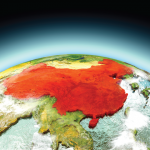NEW YORK (Reuters Health)—Iguratimod, a disease-modifying drug marketed in China and Japan, appears to be effective in treating rheumatoid arthritis (RA) and possibly other autoimmune diseases, while protecting against adverse bone effects, researchers from China say.
Iguratimod is a methane sulfonanilide compound that influences several anti-inflammatory and immune-modulatory pathways and has an anabolic effect on bone metabolism, the team notes in Bone Research, online Sept. 3, where they review the various effects of the drug.1
Iguratimod was approved in China in 2011 and Japan in 2012, and most studies have described its use in patients with RA, according to Dr. Qiang Shu from Qilu Hospital of Shandong University, Ji’nan, and Shenzhen Research Institute of Shandong University, Shenzhen, and colleagues.
One report indicated that iguratimod is more efficient than other current anti-rheumatic drugs against TNF-alpha, IL-4, IL-6, NF-kappaB and IL-17, key players in the inflammatory cascade.
Iguratimod has also shown promise in other inflammatory diseases (e.g., axial spondyloarthritis and pulmonary fibrosis) and autoimmune diseases (e.g., inflammatory bowel disease, Kawasaki disease and lupus nephritis), they authors say.
Bony effects of iguratimod include stimulation of osteoblast differentiation to increase bone formation and inhibition of osteoclast differentiation to diminish bone resorption. In RA, iguratimod enhances ossification and protects the bone by activating osteoclasts.
Nausea, dizziness, headache and itching have been reported in association with iguratimod use. The incidence of adverse effects seems to be similar for iguratimod and methotrexate.
“We suggest that iguratimod’s unique mode of action compared with that of other disease-modifying anti-rheumatic drugs and its good patient response makes it a suitable anti-rheumatic and bone-protecting drug,” the authors conclude.
Dr. Shu did not respond to a request for comments.
Reference
- Li J, Zeng J, Yan A, et al. Iguratimod: A valuable remedy from the Asia Pacific region for ameliorating autoimmune diseases and protecting bone physiology. Bone Research. 2019 Sep 3; 7:27.
